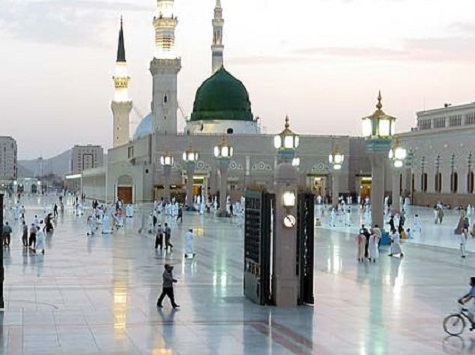
Plans to demolish the final resting place of the Islamic prophet Mohammed could further inflame the sectarian conflict developing between Shia and Sunni Muslims.
The site in Medina is threatened because the al-Masjid al-Nabawi mosque is desperately in need to expansion but the site of the tomb – which is principally venerated in Shia Islam – is part of a site that has already seen 95 percent of its history wiped away in recent years, according to Saudi academic Dr Irfan al-Alawi.
Under plans out for consultation the prophet’s body would be moved to an unmarked grave. This would prove offensive to Shias but Sunnis do not believe in worshipping saints and as a result do not pay homage to the grave. The buildings housing the body are under the green dome, and are a series of arched buildings.
Shias also venerate Mohammed’s daughter Fatima, who is believed to have lived in the threatened rooms. Whatever the intentions of the rebuild the destruction of this part of the Mosque might be seen as an attempt by Sunnis to denigrate a respected figure of Shia Islam.
The two branches of the religion are increasingly at loggerheads in the Middle East, effectively fighting a war in Syria and Iraq, with ISIS being Sunni and both the Iraq and Syrian governments being dominated by Shias.
Whilst neither side is likely to cause any trouble in Medina itself, any attempt to demolish the buildings could spark violence elsewhere according to Dr al-Alawi. Unlike in Christianity, where the Church of the Holy Sepulchre, can only be altered with the express permission of every denomination, the Grand Mosque is under the personally custody of King Abdullah. He is a Wahhabi, which is one of the most conservative sects of the Sunni denomination, a fact that is likely to cause suspicion amongst Shias.
Al-Alawi told the Independent: “People visit the chambers, which are the rooms where the Prophet’s family lived, and turn towards the burial chamber to pray.
“Now they want to prevent pilgrims from attending and venerating the tomb because they believe this is shirq, or idolatry. But the only way they can stop people visiting the Prophet is to get him out and into the cemetery.”
In reality, the King has spent huge amounts of time, money and expertise on proposed rebuilds of a number of holy sites but given recent tensions his efforts may yet prove divisive. He has been forced to act because air travel means the once long and dangerous trek to Mecca is relatively easy, which in turn has led to a vast increase in the number of pilgrims.
Just 50 years ago, the numbers would have been in their tens of thousands, but last year 2.3m people went, and this figure would be much higher if the Saudi government did not restrict the numbers.

COMMENTS
Please let us know if you're having issues with commenting.